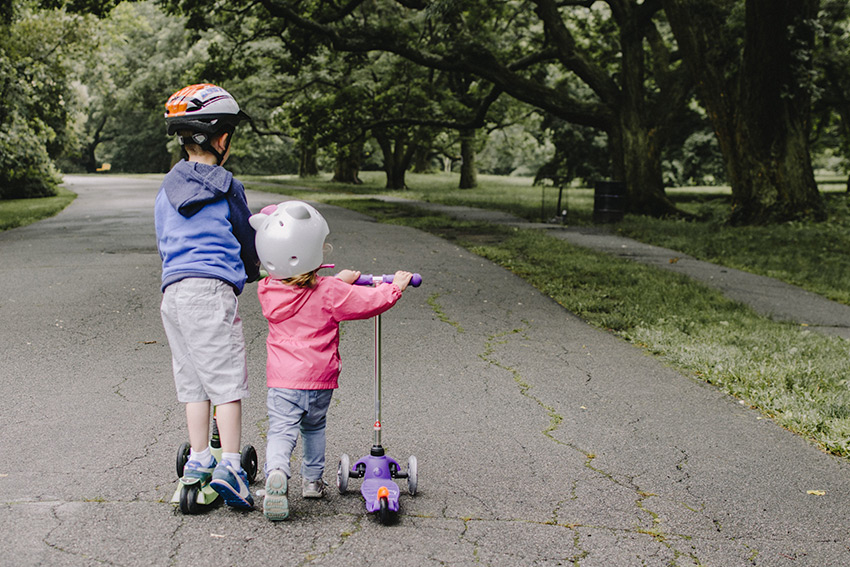The saying “it takes a village to raise a child” feels especially true with a child on the spectrum. Being a parent is no easy task, but some of the burden and life lessons aren’t always just in your hands. The relationships we make as a child are very important. Our children may interact with teachers, relatives, other adults, and of course, other children on a daily basis. These relationships matter, and making them meaningful can have lasting and positive impacts on your child’s development.
In this post, we’ll break down a few of the common meaningful relationships your child can make, and how best to support your child in making and maintaining those relationships.
1. Teacher & Child
Arguably one of the most important relationships your child can have with an adult that isn’t you, the child and teacher relationship is multi-faceted and complex. For one, your child’s teacher is in a position of authority which can be rewarding or challenging depending on how your child handles the authoritative figures in their life. On the other hand, they are also a reliable source of trained support that can serve as a role model.
The best way to support your child’s relationship with their teacher is to start with open communication about what your child’s needs and abilities are. Starting this way ensures they are well-informed to what kind of assistance your child may need in the classroom. Ideally, they will be able to devote an appropriate amount of time to ensuring your child has the right support for their success. Taking this a step further would be consulting school counselors or higher ups to see what support they can offer.
Equally as important is consulting your child about their relationship with their teacher. Communicating that they should feel comfortable trusting their teacher is important. Check-in regularly to see how your child is feeling.
2. Child & Relatives
Family is important. Beyond your immediate family, your child may or may not have regular contact with extended family and relatives. Either way, ensuring your extended family is aware of the best ways to support and interact with your child is crucial. We recommend discussing that information with any relatives your child will interact with regularly. Keeping them up to date on your child’s development can provide for a meaningful connection and support system. Beyond that, encourage your relatives to be open with you about how your child interacts with them. This can inform you of how best to build on those skills your child is displaying, and where they may need some more practice.
If a relative is particularly eager about helping out with childcare or being heavily involved with your child, encourage them to do so. As long as those relationships are healthy and well-supported, there is no such thing as too much help. This can also encourage your child to develop their general social skills and become more trusting and open. As always, just be sure to set firm boundaries where needed to ensure everyone is feeling good about their involvement.
3. Child & Friends
Perhaps the most difficult to support as a parent, your child’s relationship with their peers and friends can support them in some amazing ways. Studies show that children in “mixed” friendships, where one child is neurotypical and the other is on the spectrum, can greatly benefit both children’s development and social understanding. For one, the neurotypical child is exposed to the subtle and not so subtle differences between themselves and children on the spectrum, which can help foster a wider understanding for autism and other special needs. For your child, having meaningful friendships can help develop their social skills and build on their network of support.
For many children, these relationships will come naturally as they spend time together in classes or on the playground. For those children who have a harder time making friends on their own, parents and caretakers may need to do some more legwork. The biggest barrier to parents is that your child’s interactions with their peers happen outside of the home. We recommend solving that problem with scheduled play dates. Get in touch with the other parents to setup a time that works and be sure to lay ground rules so everyone has a good time.
If you need a little more structure than that, make it a specific autism-friendly activity and be sure everyone knows what makes it accessible. These are great opportunities for learning moments for both parents and children. This can also build a friendship between yourself and the other parents, which in turn can strengthen your children’s bonds.
As with the other relationships, discussing with your child frequently to check-in on how they interact and feel about their peers can be crucial. Describe and visualize what a healthy friendship looks like and help them identify what connections those are in their own lives.
Building these relationships with your child can strengthen a network of support that is crucial to their healthy development. The key to all of these connections is, as always, open and honest communication.
For more autism-related tips and news, be sure to keep up with us on our Facebook, Twitter and Instagram and feel free to reach out via our contact page to learn more about our services.



